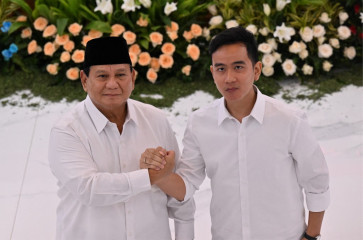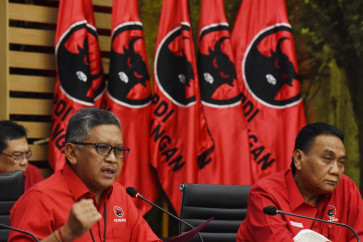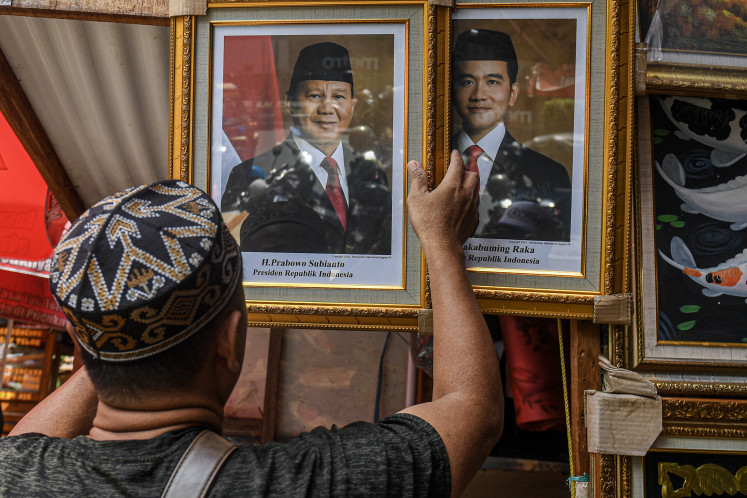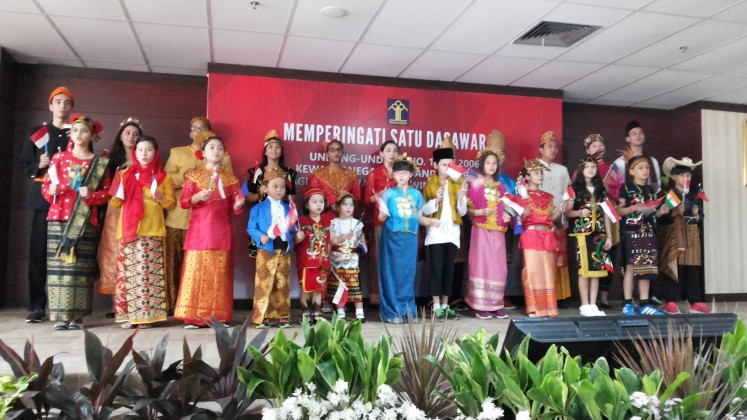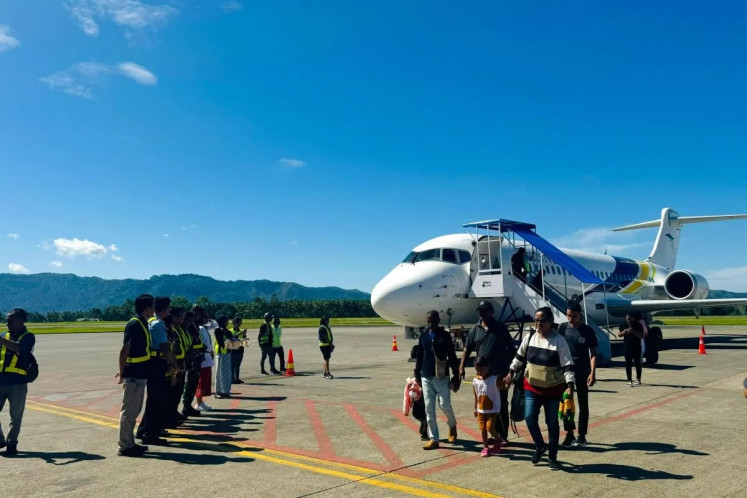Preparing the next generation for the future of work
The fourth industrial revolution — defined by evolving technological trends — is already taking shape and has immense potential to change the lives of millions of people globally
Change Size

T
span>The fourth industrial revolution — defined by evolving technological trends — is already taking shape and has immense potential to change the lives of millions of people globally. While new technologies bring with them many obvious benefits, they must also be anticipated by our education systems in order to adequately prepare our future workforce.
Are education institutions preparing students to succeed in an environment that is increasingly evolving? Are our learning systems fostering curiosity in our young people, adopting future-focused learning approaches and establishing strong education partnerships?
Two-thirds of today’s 5-year-olds will find themselves in jobs that do not exist today, according to the Deloitte organization’s “Preparing tomorrow’s workforce for the Fourth Industrial Revolution” study.
If so, how can educational institutions prepare students for the unknown? This question has pushed the boundaries of our education systems as we work towards building a future-ready workforce.
Tasked with the vitally important role of preparing young people for the future of work, schools must allow students to thrive in an environment that values curiosity and encourages innovative thinking.
Teachers need to go beyond the “right” answers and challenge students to reach their full potential. Teaching and learning must move beyond rote-learning, and give students real-life challenges and problems that require teamwork and creative thinking. Such learning experiences better equip students to succeed beyond the classroom.
The world has become globally interconnected and we are already seeing a shift in the skills needed by employees. The capabilities important for the future of work include work readiness, soft skills, technical skills and entrepreneurial skills. However, education systems have long struggled to meet and anticipate such needs. More has to be done in institutions’ approach towards youth skill development, such as injecting interactive and practical elements into the daily curriculum.
The Economist Intelligence Unit’s Educating for the Future Index highlights the challenge facing all education systems, by comparing the ability of national education systems to equip students with the skills and competencies required for the future of work.
The Index highlights a cause that New Zealand has been championing for some time. To be well-prepared for the future, knowledge of traditional subjects is no longer sufficient. It is crucial that students acquire a set of flexible skills such as creative and analytical skills, entrepreneurial skills, leadership skills, digital and technical skills, and global awareness, in order to respond to the changes caused by new digital technologies.
As a result of such efforts, New Zealand is ranked first in the Educating for the Future Index. New Zealand is recognized as having the best education system overall, earning full marks for the curriculum framework for future skills, collaboration between education providers and industry, and cultural diversity and tolerance among other measures.
Our “Think New” approach promotes inquisitive and project-based learning while providing flexible learning pathways for students. Students are encouraged to think independently, critically, creatively, which in turn builds their confidence and results in higher levels of innovation.
Partnerships between institutions have also been instrumental in meeting the needs of young people who are increasingly seeking a variety of global education and career pathways.
For New Zealand, Indonesia has been one of our oldest and closest partners in Southeast Asia, particularly in education. The coordinated efforts between our two countries in raising education standards and providing the best to our students have been successful thus far.
An increasing number of Indonesian students are also heading to New Zealand to study — and vice versa. In fact, more than 1,000 Indonesian students are currently pursuing an international education in New Zealand and preparing for a global career.
In addition, partnerships such as the post-graduate e-Government program between the University of Indonesia (UI) and New Zealand’s Victoria University of Wellington, allow for students to experience the best of education in both countries.
Under the agreement, approximately 20 Indonesian students commenced their studies on digital government at UI in 2018 and will arrive at Victoria in 2019 for one year of study, before returning to Indonesia for a final trimester.
Such initiatives and the forward-looking vision of our institutions have proven to be effective in ensuring students receive a high-quality education and more importantly, gain international experiences that will help them to meet the demands of the ever-changing global economy.
The New Zealand government is investing in furthering New Zealand’s education partnerships with Indonesian institutions and companies, as we realize that our education systems must be globally connected to equip our students for a globalized world.
We look forward to seeing these partnerships flourish, and to sharing the strengths of our education systems for the long-term benefit of both countries.
____________________
The writer is Education New Zealand’s regional director of South, Southeast Asia and the Middle East. ENZ is New Zealand’s government agency for international education.

